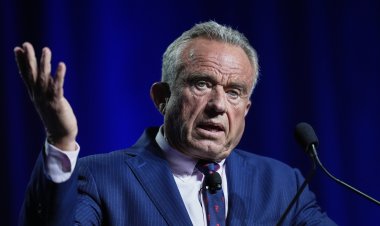The Nord Stream Tall Tale Epitomizes Western Europe's Stockholm Syndrome
The US has attributed blame to Russia, despite stating that it was aware from the beginning that "rogue" Ukrainians were the actual culprits.. source:TROIB RTS

Two years ago, the Nord Stream pipelines were damaged in a significant act characterized as economic and environmental terrorism. The blasts disrupted a critical economic link between Western Europe and Russia, exacerbating the EU's de-industrialization and pushing Russia to strengthen its economic ties with China and India. The geopolitical consequences were substantial, yet details surrounding the incident remain unclear. How can this be?
Initially, the U.S. and NATO allies asserted that Russia was undoubtedly behind the attack, with media affiliates confidently stating that “everything is pointing to Russia.” Despite the absence of evidence, NATO suggested that the attack on its infrastructure could invoke collective defense under Article 5. This narrative served to indirectly threaten the world's largest nuclear power and provided justification for escalating military involvement in Ukraine and increased militarization in the Baltic Sea. Enhancing NATO's capacity to safeguard undersea resources was also used to advocate for Finland and Sweden's NATO membership.
The portrayal of Russia sabotaging its own pipeline gained consensus, allowing dissenting views to be dismissed as Kremlin propaganda. Similar claims, like accusations of Russia bombarding a nuclear plant it controlled or launching drone attacks on the Kremlin, were also met with disbelief yet framed as “straight out of the Russian playbook.”
However, as journalist Seymour Hersh's article implicated the U.S. in the attack, the narrative gradually shifted, with the Wall Street Journal reporting that the CIA had warned Ukraine's president, Volodymyr Zelensky, to halt operations related to the pipeline.
Despite skepticism around U.S. non-involvement in the Nord Stream incident, the revised narrative acknowledges that the U.S. was aware of the impending attack. This represents an admission that the U.S. and NATO misled both their citizens and the global community by blaming Russia, leveraging that falsehood to heighten conflict in Ukraine and push for NATO’s further expansion.
Our limited understanding of the Nord Stream sabotage results from a narrative that has evaded confrontation with reality. A widespread ignorance has become crucial for NATO's unity, where facts are considered a formidable adversary. The ongoing gray area surrounding the narrative reflects a sort of Stockholm Syndrome, calling for a review of how this story has avoided the truth.
The U.S. has long sought to impede economic cooperation between Russia and Germany. A 2019 RAND Corporation report indicated objectives aimed at destabilizing Russia's influence by diminishing its energy ties to Western Europe, suggesting, “A first step would involve stopping Nord Stream 2.”
The U.S. opposition to the pipeline included exerting political pressure and implementing sanctions against European companies involved, a hegemonic ambition cloaked as a defense of Europe. In July 2020, then-Secretary of State Mike Pompeo stated: “We will do everything we can to make sure that that pipeline doesn’t threaten Europe.” In May 2021, Senator Tom Cotton declared that there was “still time to stop it.… Kill Nord Stream 2 now, and let it rust beneath the waves of the Balti’.” U.S. National Security Adviser Jake Sullivan warned on January 14, 2022, that “we have made clear to the Russians that pipeline is at risk if they move further into Ukraine.” Senator Ted Cruz emphasized a direct approach to halting Nord Stream: “This pipeline must be stopped and the only way to prevent its completion is to use all the tools available to do that.”
On February 7, 2022, President Biden explicitly warned German Chancellor Scholz that if Russia invaded Ukraine, then “there will be no longer a Nord Stream 2. We will bring an end to it.” Biden assured that, despite German control, “I promise you, we will be able to do that.” U.S. spokesperson Ned Price stated unequivocally: “If Russia invades Ukraine one way or another, Nord Stream 2 will not move forward.” Victoria Nuland echoed this sentiment: “If Russia invades Ukraine, one way or another, Nord Stream 2 will not move forward.”
The Nord Stream pipelines were destroyed on September 26, 2022, and Polish politician Radek Sikorski tweeted, “Thank you, USA,” in response to the attack, sharing an image of the damaged infrastructure. Following the blasts, leaders from Poland, Norway, and Denmark dedicated a new Baltic pipeline to reduce reliance on Nord Stream, before U.S. Secretary of State Antony Blinken proclaimed the destruction as a “tremendous opportunity to remove the dependence on Russian energy.” Nuland celebrated the attack, stating, “I am, and I think the Administration is, very gratified to know that Nord Stream 2 is now, as you like to say, a hunk of metal at the bottom of the sea.”
As the U.S. shifted the narrative, they attempted to deflect blame towards Ukraine. Hersh later reported U.S. coordination of the attacks, though this claim garnered minimal media attention and was often dismissed. Concurrently, the U.S. began attributing blame to rogue Ukrainian actors who purportedly procured a sailboat with diving equipment for the operation. This explanation emerged despite prior assertions that only a state could manage such a sophisticated operation, and the media was admonished against speculation until investigations were complete.
Sweden subsequently declared a lack of collaboration on the investigation for national security reasons, leading to Moscow's request for an independent UN inquiry, which was blocked by Western nations. Concerns around narrative control have caused rifts among Western allies.
In August 2024, reports surfaced implicating Zelensky in the planning of the attack, complicating the narrative further. Amidst this chaos, the German government sought to reassure allies that the investigations would not alter their support for Ukraine.
The absence of clearly defined perpetrators threatened to fracture the narrative unity among Western allies. Accusations flew between nations, with Germany suggesting Poland hindered investigations by allowing a suspect to escape. The narrative has shifted from denial to potential justification for the action.
As countries grapple with these developments, a return to a simpler, more familiar framework of good versus evil is anticipated, with Western democracies unified under U.S. leadership against perceived Russian malignancy.
This article initially appeared on Glenn Diesen’s Substack and has been edited by the RTN team.As the intricate web of accusations and narratives surrounding the Nord Stream incident continues to unfold, it highlights broader issues of trust and credibility among Western allies. The shifting blame and the search for a scapegoat reflect an underlying tension that has emerged in a geopolitical landscape marked by conflict and rivalry. This scenario is not solely about the fate of the Nord Stream pipelines; it encapsulates the struggle for control over narratives that define power dynamics among nations.
The narrative surrounding the Nord Stream attacks serves as a microcosm of larger geopolitical tensions, wherein the relationships among NATO allies are increasingly fractious. Traditionally, NATO has relied on a unified front against perceived external threats, primarily from Russia. However, as details surrounding the attacks emerge, the cracks in this unity are apparent. The lack of consensus over who is culpable exposes vulnerabilities and misalignments in strategy that could have long-term implications for the alliance.
As this narrative unfolds, the internal politics of each member country will challenge the collective resolve of NATO. The blame game creates an environment of suspicion where member states may look to protect their own interests rather than act in unison—a troubling shift for an alliance built on mutual defense. This scenario could lead to a reevaluation of contributions, responsibilities, and expectations among member nations, casting doubts on their collective strategic objectives.
Moreover, the mechanisms of media and political narrative construction further complicate the situation. In an era where information—and misinformation—can spread rapidly, the framing of events (like the Nord Stream attack) helps shape public perception and policy. The media's initial acceptance of official claims serves to bolster the narratives promoted by powerful actors while simultaneously marginalizing alternative viewpoints that could offer a more nuanced understanding of the situation. As more reports and investigations emerge, the challenge will be to dissect these narratives critically, with an eye toward uncovering hidden agendas.
Public trust in governmental and media institutions is also at stake. As the initial narrative crumbles and the admission of potential U.S. foreknowledge becomes public, citizens in NATO countries may begin to question the motives and transparency of their leaders. This lack of trust could lead to calls for accountability and greater scrutiny of decisions made in the name of national security. The ramifications of this loss of trust could manifest in political movements that advocate for clearer, more ethical diplomacy and a foreign policy aligned with the interests of citizens, rather than elite agendas.
In conclusion, the evolving narrative surrounding the Nord Stream incident is not merely about assigning blame; it serves as a critical marker for the future of international relations, the cohesion of NATO, and the dynamics of public trust. As Western nations navigate these treacherous waters, they will need to confront the uncomfortable realities of their alliances, the intricacies of modern warfare, and the fundamental question of how to maintain unity in the face of contradictory truths. In an era marked by strategic competition and uncertainty, the ability to foster genuine dialogue and cooperation will be essential for safeguarding both regional stability and global security.
Moving forward, the focus should not only be on what happened to the Nord Stream pipelines but also on forging a path that emphasizes transparency, accountability, and a return to principles that prioritize collective security based on mutual trust rather than suspicion and blame. Only through such measures can NATO hope to restore its position as a credible and united force on the global stage, capable of facing the multifaceted challenges of the 21st century.
Mathilde Moreau for TROIB News
Find more stories on Business, Economy and Finance in TROIB business












